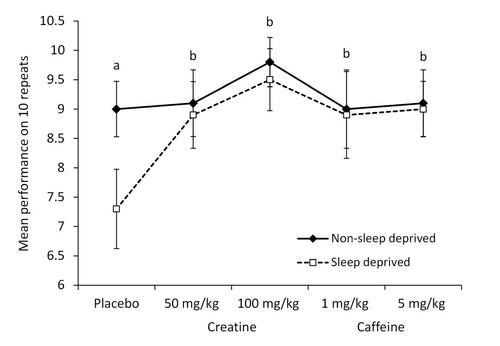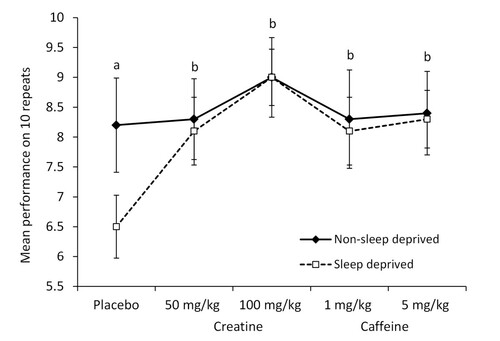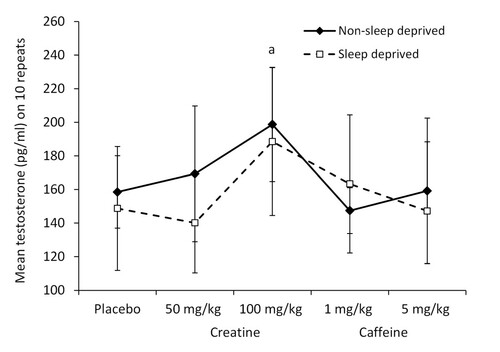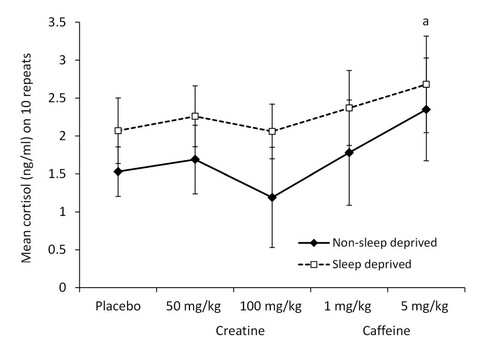Figures & data
Table 1 Accuracy, out of 10 attempts (20 total per trial), for each of dominant and non-dominant passing sides on the first, fifth and twelve familiarisation trials.
Figure 1 Effects of sleep deprivation and acute supplementations on passing accuracy (dominant side). The mean ± SD is displayed for accuracy out of 10 passes on the dominant side (20 passes total per trial) for the 10 subjects under different treatment conditions (placebo; 1 or 5 mg/kg caffeine, 50 or 100 mg/kg creatine) either in non-sleep deprived or sleep deprived states. Dominant was chosen by the subjects as the side they believed showed better passing accuracy. All subjects completed 20 repetitions of the passing skill per trial, alternating passing sides (10 on dominant side). With placebo treatment sleep deprivation was associated with a significant fall in performance (a) (p < 0.001) compared to non-sleep deprivation. The 50 and 100 mg/kg creatine and 1 and 5 mg/kg caffeine doses were all associated with a significantly better performance (b) (p < 0.001) than the placebo conditions.

Figure 2 Effects of sleep deprivation and acute supplementations on passing accuracy (non-dominant side). The mean ± SD is displayed for accuracy out of 10 passes on the non-dominant side (20 passes total per trial) for the 10 subjects under different treatment conditions (placebo; 1 or 5 mg/kg caffeine, 50 or 100 mg/kg creatine) either in non-sleep deprived or sleep deprived states. All subjects completed 20 repetitions of the passing skill per trial, alternating passing sides (10 non-dominant side). With placebo treatment sleep deprivation was associated with a significant fall in performance (a) (p < 0.001) compared to non-sleep deprivation. The 50 and 100 mg/kg creatine and 1 and 5 mg/kg caffeine doses were all associated with a significantly better performance (b) (p < 0.001) than the placebo conditions.

Figure 3 Pre-trial salivary free testosterone (pg/ml) across treatments. The mean ± SD is displayed for salivary testosterone under different treatment conditions (placebo; 1 or 5 mg/kg caffeine, 50 or 100 mg/kg creatine) either in non-sleep deprived or sleep deprived states. The 100 mg/kg creatine dose was associated with a higher concentration of testosterone (a) (p = 0.067) compared to the placebo treatment.

Figure 4 Pre-trial salivary free cortisol (ng/ml) across treatments. The mean ± SD is displayed for salivary cortisol under different treatment conditions (placebo; 1 or 5 mg/kg caffeine, 50 or 100 mg/kg creatine) either in non-sleep deprived or sleep deprived states. The 5 mg/kg caffeine dose was associated with a significantly higher concentration of cortisol (a) (p = 0.001) compared to the placebo treatment.
